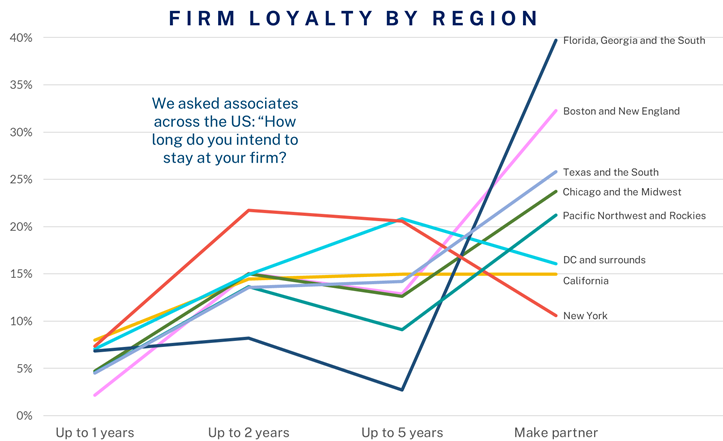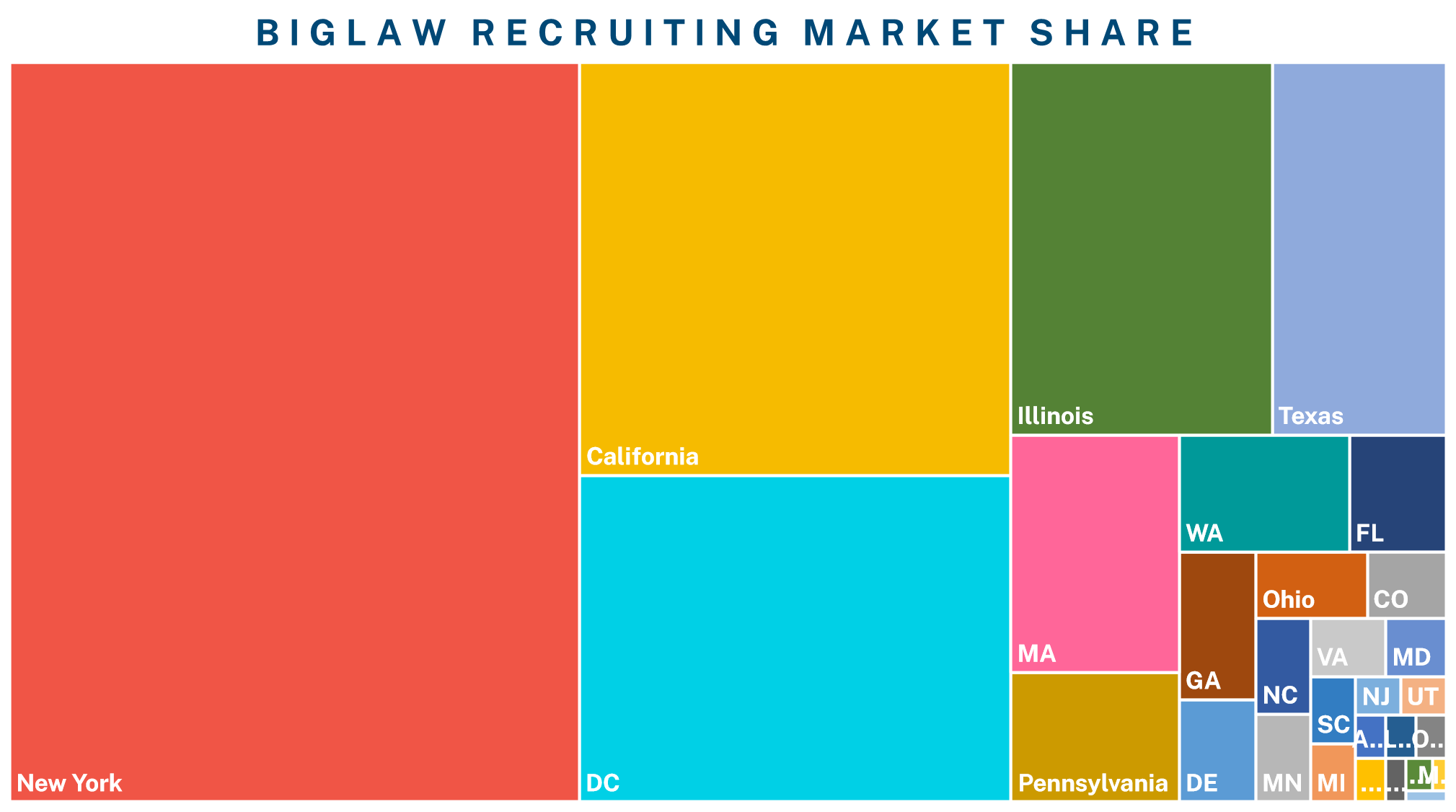
We asked over 3,000 junior associates across the country about life at their law firms.
Antony Cooke, June 2020
THE upshot from 2020's research is that associate experiences and aspirations vary wildly depending on location. We wanted to look far beyond the head offices and major cities to consider what life offers junior lawyers across the US.
Texas led the pack for having the most contented associates. Our survey closed right in the middle of pandemic lockdown and amidst news of oil prices hitting rock bottom – this didn’t seem to dampen associates’ zest for life, however. We interviewed Jackson Walker about why lawyer life is so good in Texas, and they cited in particular a booming tech economy and more bang for your buck: "I’ve been able to buy a house with a big back yard,” one of their associates told us – a comment which New York associates might find insensitive.
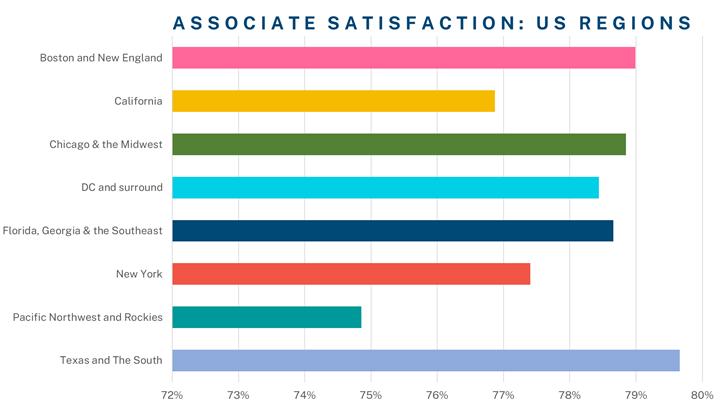
Breaking down our career satisfaction results into the six core areas we assess firms on and we see new leaders emerging across the US. California's tech-driven entrepreneurial environment means smaller teams, closer relationships with partners and mentors, and genuine access to clients. Venture capital work allows the associate to see how a whole transaction works – the kind of thing associates in financial hubs like New York would dream of.
 We learnt from Gunderson about working with emerging companies>
We learnt from Gunderson about working with emerging companies>
For retention, associates gave us scores for how committed they were to their firms and we crunched that against the factors influencing retention, from mentoring and training to D&I policy. Again, Texas performed well here, alongside Bostonian firms, which also led the pack for remuneration. In Boston, the caliber of the student, the tech- and finance-driven economy, and the East Coast salaries that go further, create a positive outlook from associates there. Todd Garcia, managing principal of Fish & Richardson in the firm's Boston office, told us: "Boston is a great place to go to law school and an even better place to live and practice law. Law firms from all over the world recognize the superior educational opportunities offered in Boston and recruit from the area’s many fine law schools. With a background in tech or life sciences, there is no better place to be than Boston.”
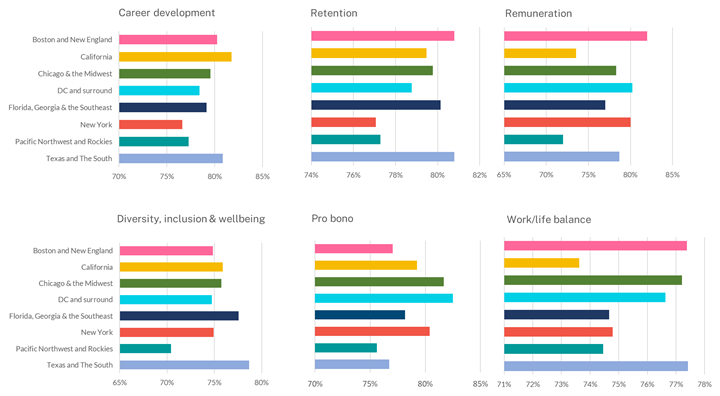
Texas might not be the first place we think of for top-rate D&I culture, but Texan associates rated their firms highly on that front. All we will say here is everything is relative.
DC led the pack in our survey on pro bono, in which associates felt the capital offers the best pro bono experience in the country. Access to NGOs and public institutions means there are great opportunities for young lawyers to learn from the nation’s most challenging work.
New Yorkers are a pretty realistic bunch: they know their lot and are not effusive on any front. It's noticeable that West Coasters trail behind East Coasters in most areas, with the Pacific Northwest looking particularly glum - we'd blame the weather in Seattle because the firms out that way are famously compassionate, happy places to work.
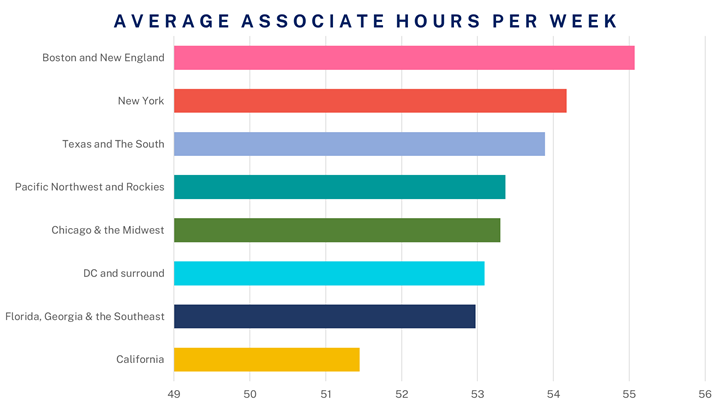
The booming Boston economy may be the culprit here for the longer hours billed, but note how small the variation is across the nation. Below we analysed the hours distribution by region. We learn from this that, with a 55-hour week being the average, the law is a demanding career, for sure, but the horror stories of BigLaw hours (which we'd class as anything above 70 per week) occur in a real minority of cases. We gathered this data by asking over 3,000 associates how many hours they worked in their last full working week. Looking at Boston in particular, we can see how flexible working culture is nowhere to be seen: it's all or nothing. Across the US the profession is clearly not accommodating to people wanting to work part-time. Is it any coincidence, then, that women rate their firms so badly on work-life balance and is a significant reason why they leave their firms?
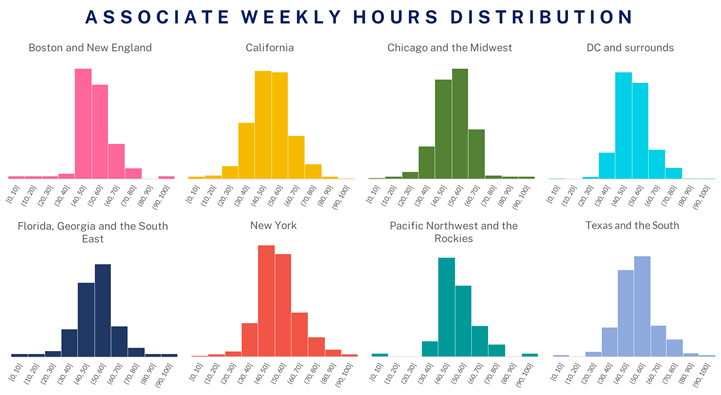
We found that cultural factors determine good and bad associate retention. So whatever cultural trends exist within law firms in Florida, they seem to be getting it right ...or that every region sets the tone for each attorney's career: in New York it's the norm to leave your first firm after a few years, but less so elsewhere. In Manhattan, associates frequently treat their first firm as a stepping stone to their next role. New York firms typically staff at a ratio of four associates to every partner; regionally it gets closer to a 1:1 ratio. The prospect of making partner in New York is something of a joke in BigLaw.
